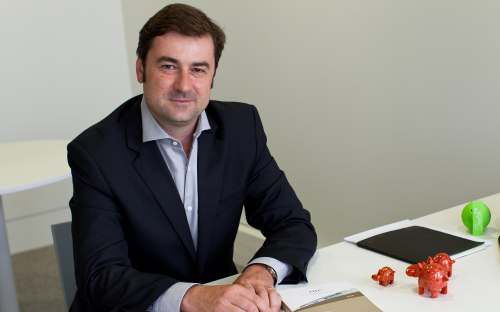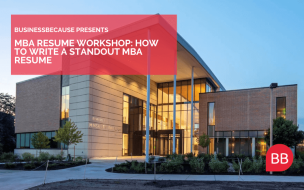One of the foremost Grandes Écoles, the elite professional schools that count many of France’s top leaders as alumni, its roots are visible in the clutch of alums leading big French companies. HEC Paris has more graduates who are chief executive officers than any other continental business school. These include the CEOs of BestBuy, Kering, AXA, L’Oreal and Lafarge.
A global transformation means every course is now taught in English. Around 90% of MBAs and 65% of the faculty are from outside France. HEC Paris revamped its curriculum in 2012, and the result is a more hands-on approach to analytical thinking and leadership development.
HEC Paris’ ambition to internationalize is bearing fruit. Its MBA is ranked 16th globally by the FT. Graduates’ salaries are doubled and 90% are employed three months of leaving campus. Tech is one of the largest employing industries, led by Amazon, Google, Microsoft and LinkedIn.
Career success is bolstered by a large alumni network of 50,000 that is spread across 75 countries, with London, Geneva, New York and Shanghai the biggest. This global network is bonded by the smaller class sizes at HEC Paris compared with other global schools.
With an acceptance rate of about 18% it is also one of the most selective in Europe. The minimum GMAT score required is 600. The MBA costs €52,000 in tuition fees.
Philippe Oster, admissions director, sheds light in this interview on what MBA candidates need to get into the 300-acre business school based 12 miles southwest of Paris.
What makes the HEC Paris MBA unique?
The school offers the broadest career opportunities in Europe. With more alumni in CEO positions than any other continental business school, it is the alma mater of CEOs in Europe, with the CEOs of BestBuy, L’Oreal, Kering, Lafarge, AXA and the executive vice president of Havas Worldwide hailing from HEC Paris, to name but a few.
The past month on campus has been particularly busy on this front. We recently welcomed Jean-Dominique Senard, who shared his insights on being the CEO of Michelin to our MBA participants. Last week, Ratan Tata, former CEO of Tata Group, came to the campus and engaged in a Q&A session.
Our students benefit from the school’s proximity to La Défense, the epicentre of European business, with the highest concentration of multinational corporation headquarters on the continent.
Additionally, as one of the founding members and the only business school of the Paris-Saclay innovation cluster — ranked as one of the most influential in the world — HEC Paris has an important role to play in [driving] business innovation.
[The] HEC Paris MBA is also unique in the great emphasis it places on leadership and transformation. Students are presented with a number of varied opportunities to put their leadership theory to the test.
What qualities, skills, and previous experiences do you look for in MBA applicants?
Before the application process really gets underway, candidates have to meet two prerequisites. First of all, we have to ensure that their English is fluent. Secondly, we have to be confident that the candidate has the intellectual agility to fully participate in classes given on subject matters with which they might not be familiar; this is what we essentially look for when analyzing GMAT or GRE scores.
Once we are satisfied that these two prerequisites have been met, we look at four main areas of criteria to assess the candidates.
Academic performance: we pay close to attention to the candidate’s previous academic accomplishments. This includes their academic level, and the quality and selectivity of the university where they carried out their studies.
Professional accomplishment: we look for evidence of career progression and professional achievements. We also take into consideration the selectivity and prestige of the companies they have worked for, and the evaluation provided in their recommendations.
International exposure: a global outlook is a particularly important attribute we look for. We consider...The number of languages a candidate is proficient in, and confirmation that a candidate has had experience of multicultural environments.
Leadership potential: we look for demonstrated leadership experience, and the candidate’s ability to convey their potential in their essays and interviews.
Why do international MBA candidates come to HEC Paris?
The MBA offered here provides students with the unique opportunity to immerse themselves in a 200-strong student body, made up of 90% international students from over 50 countries. This means that throughout the MBA experience, our students come into contact with a highly diverse group of students, not only in terms of nationality and culture, but also in terms of professional background.
When asked about the highlights of their MBA experience, our students often cite the highly diverse community in which they live and study. Students develop an understanding of the working cultures of their peers, and are thus exposed to questions, methods, and solutions that they may never have previously thought of — enriching their learning experience both in and out of the classroom.
A culturally-diverse mix of students not only adds new dimensions to classroom discussions, it also presents students with networking opportunities that can span the globe. This experience gives our students a competitive edge when it comes to applying for jobs in diverse working communities, or if they are looking to go abroad.
Ultimately, many students are looking to work outside of their home country, and undertaking their MBA studies in their target location is arguably one of the best ways to get an introduction to business life in that country.
Where are HEC Paris’ alumni networks the strongest?
There are 88 alumni chapters worldwide, in a total of 75 countries. The most prevalent networks are in London, Geneva, New York, and Shanghai. There are also 60 professional alumni groups, covering all industries, providing unparalleled opportunities for our students.
In which ways are MBA students able to benefit from HEC Paris’ location?
Located just 20km from the heart of European business — La Défense — our MBA students are well-positioned for internship job opportunities. Our MBA students are at the forefront of business innovation, acting as ‘connectors’ for international businesses and implementing their global strategy locally around the globe.
[The] HEC Paris MBA has incredibly strong links with not only the European market, but with [the] global market as a whole.
Which employment sectors are currently recruiting at HEC Paris the most?
The biggest increase in hiring this year has been in industry, accounting for over half of the graduating class of 2014. This has essentially been driven by the tech sector, accounting for almost 20% of the total graduating class. This upsurge has been led by companies such as Amazon, Google, Microsoft and LinkedIn.
RECAPTHA :
ed
ba
51
1c








